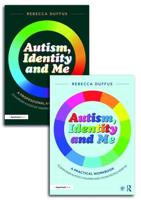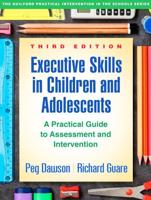Publisher's Synopsis
Do you work with angry children? Are you wondering why young people don't listen when they are angry? Are you exhausted from trying to understand angry behaviour? Are you having difficulty finding specialist help as soon as you need it?
Anger Management is a practical guide that will help you to stay calm in the face of angry outbursts from children and young people, and support them in learning to manage their anger better. Written by chartered psychologists with extensive experience in the field, this helpful book will:
- increase your understanding of anger;
- offer you a range of practical management interventions;
- help you to manage your own behaviours to build more effective relationships;
- reduce the stress experienced by staff and parents who lack confidence in the face of aggressive behaviour.
With stress and anger levels amongst young people at an all-time high, this third edition of Anger Management is particularly timely. It reflects significant developments in the fields of neuropsychology and our understanding of the physiology of emotions, as well as updated research into attachment theory, resilience, Acceptance and Commitment therapy and positive psychology. New sections include the importance of teaching forgiveness, gratitude and compassion, Mindfulness, the benefits of exercise, practical advice for Teaching Assistants and a 'how to' guide to managing risk. The book also discusses the revised Code of Practice for children and young people with Special Educational Needs and Disabilites (SEND 2014) and explores the implications of these changes for practitioners.
Containing helpful worksheets, examples, explanations and practical advice, Anger Management provides targeted support for anyone working directly with children and young people to enable you to cope with angry behaviour in the best way possible, which is crucial for the wellbeing of adult and child alike. This book will prove invaluable to teachers as well as parents, teaching assistants, carers, psychologists, social workers and health care workers.













